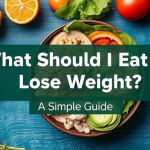In today’s world of health and fitness, the supplement industry has become a multi-billion dollar market, with millions of people spending significant amounts of money each year in hopes of improving their health, losing weight, gaining muscle, or boosting their energy levels. However, with so many different types of supplements flooding the market, it’s easy to wonder if you’re actually getting your money’s worth—or if you’re simply wasting your hard-earned cash.
If you’ve ever asked yourself, “Am I wasting money on supplements?” then you’re not alone. Many people blindly follow supplement trends without understanding whether the product is genuinely beneficial or necessary for their specific goals. This article will delve into the truth behind supplements, their effectiveness, and whether they are a necessary part of a healthy lifestyle.
The Supplement Industry: A Billion-Dollar Business
The global supplement market is projected to surpass $200 billion by 2026, a number that’s expected to continue growing as people become more health-conscious. Supplements range from vitamins and minerals to protein powders, fat burners, and pre-workout drinks. But despite the industry’s rapid expansion, the effectiveness of many supplements remains questionable. In fact, many products are marketed with exaggerated claims and unrealistic promises.
Understanding Supplements: Do You Really Need Them?
Before you rush out to purchase the latest supplement, it’s important to understand that supplements should be just that: a supplement to your diet, not a replacement for healthy eating habits. The key to a balanced and effective fitness or wellness routine starts with proper nutrition. For most people, a well-rounded, nutrient-dense diet can provide the necessary vitamins, minerals, and protein needed to support health and fitness goals.
Key Points:
- Whole Foods vs. Supplements: Whole foods provide your body with a variety of nutrients that work together synergistically, something that supplements often can’t replicate. Fresh fruits, vegetables, lean meats, nuts, seeds, and whole grains contain essential vitamins, minerals, fiber, and healthy fats that your body can absorb more effectively.
- The Role of Supplements: While supplements can be beneficial in certain situations—such as when you have a vitamin deficiency or struggle to meet your nutrient needs due to dietary restrictions—they should never replace whole foods. For example, if you’re vegan and find it difficult to get enough vitamin B12, a supplement may be necessary to fill the gap. However, if you’re eating a varied diet, you may not need to supplement with every available product on the market.
The Truth Behind Popular Supplements
It’s easy to get overwhelmed with the sheer number of supplements available. Below, we’ll take a closer look at some of the most common supplements and examine whether they are worth the investment.
- Protein Powders: Protein is a crucial macronutrient needed for muscle repair, growth, and overall body function. Many people turn to protein powders as a convenient way to increase their intake, especially after workouts. However, unless you’re an elite athlete or have specific protein needs due to health conditions, you likely don’t need a protein supplement. If you’re already consuming a balanced diet rich in whole foods like lean meats, eggs, legumes, and dairy, you may be meeting your protein needs without the need for powders. In fact, overconsumption of protein can lead to digestive issues or kidney strain over time.
- Fat Burners: Fat burners are marketed as miracle solutions for weight loss. These products often contain stimulants like caffeine or thermogenic compounds that claim to increase metabolism and fat-burning potential. While some ingredients might have a slight effect on calorie burning, there is no supplement that will magically melt fat off your body. Successful weight loss still requires a calorie deficit (burning more calories than you consume) through a combination of diet and exercise. Relying on fat burners alone is a mistake and can lead to wasted money and even side effects like jitteriness or dehydration.
- Multivitamins: Multivitamins are one of the most popular supplements on the market, and while they can help cover potential nutritional gaps, they are not a magic bullet for health. Many people use them as an excuse to eat poorly, thinking that a multivitamin will compensate for a poor diet. However, studies have shown that taking multivitamins may not provide the same benefits as obtaining vitamins and minerals through food. In fact, some studies have found that long-term use of multivitamins may even have little to no impact on health outcomes. Unless you have a diagnosed deficiency, multivitamins might not be necessary for most individuals.
- Pre-Workout Supplements: Pre-workout supplements are designed to boost energy, focus, and performance during exercise. They often contain caffeine, creatine, beta-alanine, and nitric oxide boosters. While some of these ingredients have been shown to improve exercise performance, the benefits may be exaggerated. Moreover, these supplements often come with side effects, such as jitters, nausea, or a “crash” after the effects wear off. If you have a balanced diet and stay hydrated, you may not need a pre-workout supplement to enhance your training.
- Creatine: Creatine is one of the few supplements with solid scientific backing. It has been shown to improve strength, power, and muscle mass in individuals engaged in high-intensity exercise, such as weightlifting or sprinting. Unlike many other supplements, creatine is relatively inexpensive and generally safe when used as directed. However, it’s important to note that creatine benefits mainly those who are involved in short bursts of intense activity. If your fitness routine focuses on endurance or low-intensity exercise, creatine may not provide the same advantages.
How to Avoid Wasting Money on Supplements
To avoid wasting money on ineffective or unnecessary supplements, consider these tips:
- Assess Your Diet First: Before purchasing any supplements, evaluate your current diet. Are you eating a variety of nutrient-dense foods? If so, supplements may not be necessary. Focus on whole foods first and use supplements as a last resort.
- Consult a Healthcare Professional: If you’re considering adding supplements to your routine, it’s always best to consult with a healthcare provider or nutritionist. They can help determine whether you have any nutrient deficiencies and recommend supplements tailored to your specific needs.
- Research Supplement Claims: Be wary of exaggerated claims like “lose 20 pounds in a week” or “guaranteed muscle gain.” No supplement can replace hard work and consistency in the gym or a balanced diet. Stick with products that are backed by scientific research and avoid those promising quick fixes.
- Know Your Goals: Different supplements are designed for specific purposes. Are you trying to build muscle, lose weight, or improve overall health? Understanding your goals will help you identify which supplements, if any, might be helpful.
Conclusion
While the supplement industry is booming, it’s important to approach it with caution and skepticism. Many products are not necessary for most individuals and may not provide the benefits they claim. Instead of spending money on countless supplements, focus on improving your diet and exercise routine, and consider supplements only if you have specific needs or deficiencies. By understanding the truth behind popular supplements and how they fit into your overall health and fitness plan, you can make more informed decisions and avoid wasting money on products that won’t deliver real results.
Final Thoughts: Supplements can play a role in supporting your health and fitness journey, but they should never replace a balanced, nutritious diet. Always research, consult experts, and align your supplement use with your personal health goals. By doing so, you’ll ensure that your investments in supplements are both effective and worthwhile.






Leave a Reply